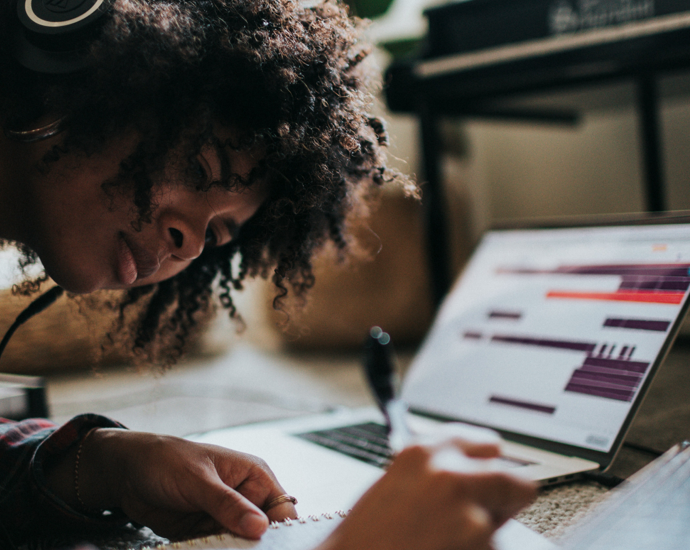Integrating artificial intelligence into the music industry has been a topic of intense discussion and controversy, particularly in the realm of music creation. Generative AI tools have attracted significant scrutiny, with concerns about the lack of transparency in data training practices and high-profile lawsuits against platforms like Udio and Suno highlighting the ethical and legal challenges in this space.
Moreover, the AI landscape has been facing headwinds in the world of investment. Recent studies have shown that using AI in marketing pitches can actually deter potential customers, casting doubt on some of the more grandiose claims about AI’s transformative potential. This cooling enthusiasm has left many investors increasingly sceptical about the technology’s real-world impact.
However, amidst these challenges and controversies, there are specific applications of AI in music marketing and fan engagement that show genuine promise. These practical uses of AI technology could potentially help artists, marketers, and fans alike, offering tangible benefits without the ethical quagmires associated with AI-generated music.
In this article, we’ll explore how AI is being leveraged to enhance fan experiences, streamline marketing processes, and create more personalized connections between artists and their audiences. From AI-powered chatbots and predictive analytics to personalized content creation and social media optimization, we’ll examine the concrete ways in which AI is reshaping the landscape of music marketing and fan engagement.
While it’s crucial to approach AI with a critical eye and acknowledge its limitations and potential drawbacks, understanding its practical applications in music marketing can help industry professionals navigate this complex technological landscape more effectively.
Personalized Fan Experiences
AI is dramatically enhancing the way fans interact with music and artists. Platforms like Endel are using AI to create personalized soundscapes based on listeners’ environments and moods, adapting in real-time to factors like weather and location. Warner Music Group’s partnership with TheWaveVR is taking this a step further, offering immersive virtual reality concerts that transform the live music experience.
The impact of these AI-driven personalization efforts is significant. Platforms leveraging AI for personalization have reported a 30-35% increase in user engagement and streaming numbers. This trend is set to continue as AI becomes more adept at understanding and catering to individual preferences.
AI-Powered Marketing Strategies
For marketers, AI is proving to be a revolutionary tool. Platforms like Landmrk use AI to create location-based experiences, unlocking exclusive content for fans based on their geographical location. This not only increases engagement but also provides valuable data for future marketing efforts.
AI is streamlining workflows for marketers by automating tasks such as content creation, campaign management, and data analysis. Reports suggest that AI-driven marketing tools can reduce campaign management time by up to 40% while increasing campaign effectiveness and audience reach.
Personalized Content Creation
AI’s ability to analyze fan data and create customized content is transforming marketing strategies. From personalized news articles and videos to AI-generated art and merchandise, the possibilities are vast. For instance, AI can create customized social media posts, captions, and stories tailored to individual fan preferences. It can even compose playlists for fans.
AI-generated content isn’t limited to text and music. Some platforms are using AI to create unique and personalized merchandise, such as limited-edition jerseys based on real-time events and fan preferences.
AI Chatbots for Fan Interaction
AI chatbots are becoming increasingly sophisticated in their ability to provide personalized fan interactions. Artists like Maroon 5 and Dua Lipa have used AI chatbots to engage fans with personalized messages and quizzes, resulting in interaction rate increases of over 50%.
In the sports world, teams like Arsenal London and the NBA’s Golden State Warriors have implemented AI chatbots to provide fans with live match updates, player statistics, and personalized content. These chatbots not only answer queries but also collect valuable fan data that can inform future marketing and production strategies.
AI in Social Media Marketing
Social media remains a crucial platform for music marketing, and AI is enhancing its effectiveness. Tools like Socialbakers, Predis.ai, and Symphony offer advanced audience insights, content generation, and posting optimization. These AI-powered platforms analyze user engagement to guide posting strategies, optimize content, and track performance.
Some music labels have reported increases in engagement rates of 25-30% on platforms like Instagram and Twitter by using AI for social media analysis. AI can help streamline social media strategies by suggesting content ideas, generating text, creating and enhancing visuals, suggesting trending hashtags and emojis, and even translating content into multiple languages.
Predictive Analytics and Trend Forecasting
One of the most exciting developments in AI-assisted marketing is its ability to predict music trends and identify potential hits. Platforms like Instrumental use AI to scour streaming platforms and social media to find emerging artists and tracks before they hit the mainstream. This technology has led to the discovery of artists who later signed major deals, demonstrating the predictive power of AI in music trend analysis.
AI can also provide predictive analytics for fans, helping them make informed decisions about things like fantasy sports teams or sports betting activities. This adds another layer of engagement and interactivity to the fan experience.
The Future of AI in Music Marketing
Looking ahead, the impact of AI on music marketing is expected to be profound:
- For fans, AI will lead to even more personalized and engaging experiences. AI-powered recommendations, interactive content, and virtual events are likely to become the norm.
- For artists, AI will enable greater creative freedom and provide better insights into fan preferences. New revenue streams may emerge, with AI-generated music and voice licensing becoming more common.
- For marketers, AI-powered tools for content creation, audience analysis, and campaign optimization will become essential. This will lead to more effective and efficient marketing campaigns.
From personalized experiences and AI chatbots to predictive analytics and trend forecasting, AI is reshaping how artists connect with their audience and how marketers promote music. While challenges and ethical considerations remain, the future of music marketing with AI looks promising, with more personalized, engaging, and effective campaigns on the horizon.

